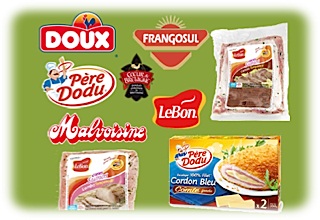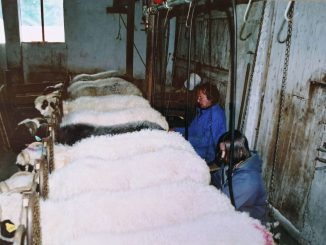Hundreds of poultry farmers across France face ruin in the wake of the collapse of the country’s biggest poultrymeat exporter, Doux. Yet the group’s export sales qualified for EUR 54.9 million in CAP export restitution payments last year alone.
The group’s business model is such that there is a major risk to suppliers of related services, such as animal feed and vets, whose futures could also be jeopardised. Weeks ago, farmers’ representatives had already voiced their concern over lengthening payment times for deliveries of birds to the group’s slaughterhouses.
Estimates vary, but about EUR 200 million of the group’s current debt mountain goes back to 1998, when Doux acquired Brazilian poultry business Frangosul. In early May, Brazilian meat giant JBS finally took over operations at Frangosul, but did not assume any of the earlier debt that went with the business.
As well as being a major poultrymeat exporter, a significant proportion of Doux’s French output goes to French supermarkets. The Doux management had long argued that multiple retailers should understand that two thirds of poultrymeat production costs are made up of animal feed and that retailers should expect to pay more when feed costs rise. This was made clear to the author on the Doux stand at the 2010 Paris farm show SIA, when the industry giant was already struggling with huge debts which are currently put at around EUR 437m.
The Sarkozy legislative programme did not help food producers to earn a living from supplying French retail giants, in fact the Loi pour la Modernisation de l’Economie (LME) was jokingly referred to as the “loi Michel-Edouard” since it so perfectly served the interests of supermarket operator Michel-Edouard Leclerc. It requires suppliers to guarantee prices for twelve months at a time, regardless of the trading realities for either the suppliers or their upstream partners.
Animal welfare groups are already angry at the prospect of public money being used to prop up a business that is built on intensive livestock and whose output includes industrial food for retail and foodservice outlets. The fact that retail margins on products like chicken nuggets are more effectively ringfenced than the livelihoods of poultry producers just adds insult to injury.
Just days ahead of parliamentary elections, the new French government faces a crisis that threatens to tear apart rural infrastructure, as well as the country’s poultry sector, which is frequently cited as an export success story. The fact that EUR 54.9 million came out of CAP funds last year alone begs the question of whose interests are being served by export restitutions.





